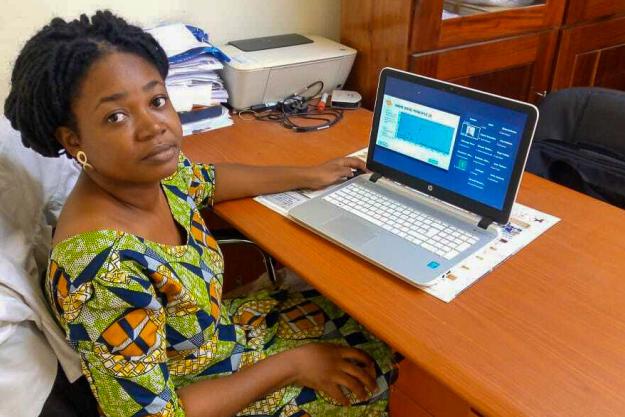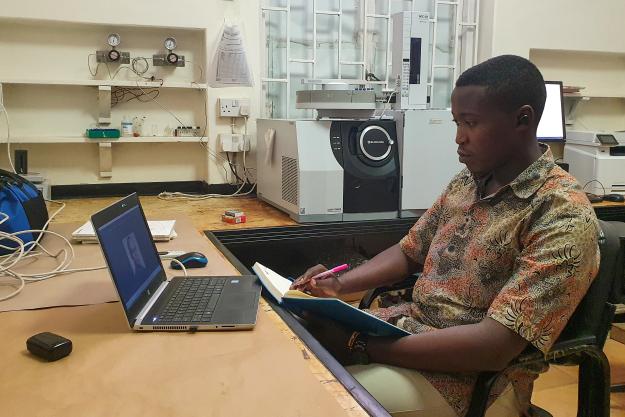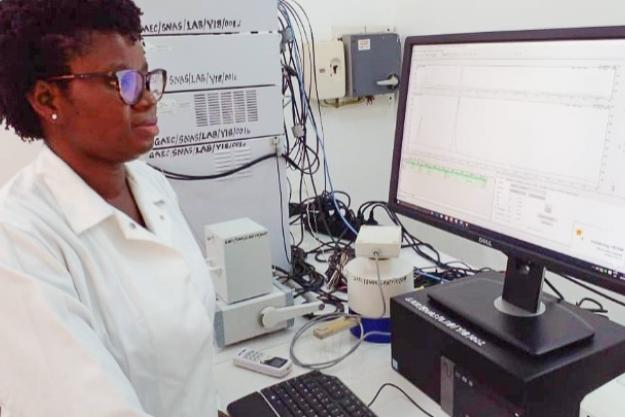
THE HAGUE, Netherlands—23 June 2022—The Organisation for the Prohibition of Chemical Weapons (OPCW) and the Finnish Institute for Verification of the Chemical Weapons Convention (VERIFIN) co-organised a two-week analytical skills development course for chemistry professionals from African Member States. The training took place online from 30 May to 10 June 2022 with financial support from the European Union.
The training focussed on building the capacities of qualified analytical chemists in the quantitative analysis of chemicals related to the Chemical Weapons Convention (CWC). It also aimed to deepen the knowledge of participants on sample preparation, quality control, health and environmental issues related to toxic chemicals and the national implementation of the CWC.
In addition, participants received training in gas chromatography (GC), a modern analytical technique used to separate and analyse chemical substances. The theory behind GC was covered as well as the GC equipment, its optimisation, system validation and troubleshooting. The participants were also introduced to GC-MS (gas chromatography and mass spectrometry) as well as to a range of extraction, clean-up, and derivatisation procedures that are used in the analysis of chemicals related to the CWC.

The course provided a helpful platform for participants to exchange individual work experiences and challenges faced with both GC and GC-MS and to learn good laboratory practices.
At the opening session on 30 May, the OPCW programme officer, Mr Saurabh Bhandari, stated: “This type of specialised course plays an important role in reinforcing and strengthening ongoing efforts to enhance analytical capacities and knowledge sharing among Member States. It is an essential part of advancing the national implementation of the CWC.”
The programme was attended by 14 participants from 11 OPCW Member States: Burundi, Cameroon, Ghana, Kenya, Malawi, Mali, Mauritius, Nigeria, Togo, Uganda, and Zimbabwe.”

Background
The OPCW analytical chemistry courses are designed for chemists from laboratories in Member States with the objective of building domestic capacity, promoting international cooperation in the field of peaceful uses of chemistry, and advancing implementation of the CWC.
As the implementing body for the Chemical Weapons Convention, the OPCW, with its 193 Member States, oversees the global endeavour to permanently eliminate chemical weapons. Since the Convention’s entry into force in 1997, it is the most successful disarmament treaty eliminating an entire class of weapons of mass destruction.
Over 99% of all declared chemical weapon stockpiles have been destroyed under OPCW verification. For its extensive efforts in eliminating chemical weapons, the OPCW received the 2013 Nobel Peace Prize.
